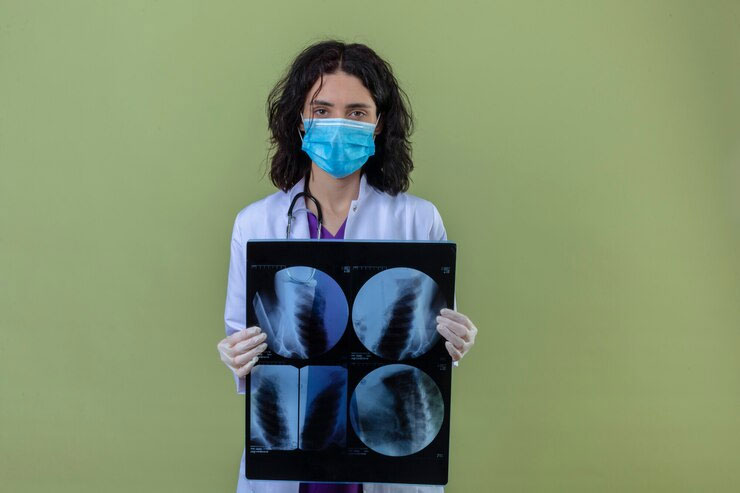
Is There a Cure? Exploring Treatment Options and Outcomes for Lung Cancer
In today’s world, the most fatal disease is Cancer. Although, nowadays with improved treatment methodologies, the majority of people can survive cancer, the physical and mental suffering that they experience is really hard to define. Cancer occurs in different parts of the body and that is why specialized treatment is required. Lung cancer is one such type of cancer. The risk of developing lung cancer becomes predominant for an individual when they have a habit of smoking or continuous exposure to carcinogens.
An early diagnosis of lung cancer provides a better chance of exploring multiple treatment options and quick recovery. The exploration and application of diversified treatment methods and techniques are also necessary for increasing the survival rates of any affected person while ensuring a better and faster recovery with minimal suffering. A personalized treatment plan and lung cancer therapy with a detailed analysis of a patient’s condition, is essential for an individual to regain their health and well-being.
Can Lung Cancer Be Cured?
“Cure” generally refers to complete recovery from a disease in every way with no signs of it returning later or affecting an individual’s health and well-being. When a person gets cured of lung cancer completely, it means that cancer has been eradicated from a person’s lungs completely with minimal possibility of it coming back and causing damage to their health for a long time. This happens when lung cancer is detected at an early stage, which helps a patient regain their health back with a combination of treatment methods.
On the other hand, long-term management and care offer a different approach for people to manage their illness and live regular lives. This path is often taken when people get diagnosed with lung cancer which is not completely curable. Treatment methodologies and procedures like chemotherapies, targeted therapies, and immunotherapies are also applied in the long-term management of lung cancer to stop it from doing further expansion and damage. The treatment involved in the long-term management of lung cancer helps an affected person to survive while treating and managing the disease.
There are certain stages through which cancer progresses in the lungs. Early diagnosis always helps to detect it in early stages(Stage I and II). Early stages are completely curable Whereas, in advanced stages(Stages III and IV) the chances of a complete cure get low. The modern healthcare system has introduced some systematic and aggressive treatments and therapies for curing these advanced stages of lung cancer with success.
Key Treatments and Their Efficacy
Lung cancer can be treated with a few traditional techniques. Surgery has always been considered a viable treatment option while treating lung cancer. The surgical process often involves the complete removal of the tumour and cancerous cell portions. It is typically used and effective for treating Non-Small Cell Lung Cancer (NSCLC).
Chemotherapy is the most used treatment method for lung cancer. It involves the application of certain chemicals, drugs, or medicines to kill cancerous cells. Although chemotherapy is often used with a combination of other treatment procedures, it can be used as a singular treatment option in special cases. It is an extremely effective and successful treatment approach for SCLC (Small Cell Lung Cancer) and NSCLC.
The use of Radiation therapy which involves the use of high-energy radiation or rays for the decimation of cancerous cells is also relevant. . It is often used as a supplementary treatment.
With developments and research in medical sciences, new treatment approaches have emerged for treating lung cancer. Targeted therapies are one of those approaches that involve the use of specific drugs to target genetic mutations or proteins responsible for the growth of cancer cells such as EGFR, ALK, and ROS1 inhibitors. Targeted therapies help in offering a personalized treatment with fewer side effects.
Immunotherapy is also one of the new treatment methods that enhances the abilities of the human immune system to identify, fight, and destroy cancer cells on its own.
Success Rates and Prognosis
Based on statistical analysis, the results of different treatments may vary depending on the stage of cancer, the patient’s overall health conditions, and how well the patient responds to treatment. There are statistical studies that indicate that Surgeries at an early stage for NSCLC (Non-Small Cell Lung Cancers) have shown 5-year survival rates reaching 60-80%. Application of radiation therapy alongside chemotherapy for Stage III NSCLC has shown 5-year survival rates reaching up to 30%.
Similar statistical studies are there in favour of using Targeted therapies and Immunotherapies for the treatment of advanced stages of lung cancer to achieve high chances of successful recovery. Early detection has always helped medical professionals and physicians to curate a specialized treatment plan for an individual for quick recovery.
Diagnosing lung cancer at an early stage results in successful recovery by receiving surgical treatments and localized therapies. Research indicates that receiving treatment early reduces a patient’s suffering and increases their chances of survival, compared to receiving treatment and therapies later.

CliniHope’s Role in Lung Cancer Treatment
CliniHope has always been one of the best places for Lung Cancer treatment. Their personalized treatment plans and approaches are perfectly suitable for all patients. CliniHope specializes in carefully assessing a patient’s health and creating the most effective treatment strategy.
CliniHope’s approach is highly effective as it provides the most suitable combination of treatment procedures, therapies, and care programs, with the help of expert medical professionals and physicians.

Conclusion
Lung cancer requires a specialized combination of treatment alongside constant monitoring to achieve successful recovery. Specialized care programs are necessary, depending on the stage and type of lung cancer. Early diagnosis always helps in having a higher chance of successful and quick recovery.
Lung cancer patients require personalized treatment and care to enhance their physical and emotional health during and after treatment. Over time, these personalized care plans assist the patients to recover soon.
Related Blogs

Them Journey through Cancer Chemotherapy: A Patient’s Perspective
21st-century life has one nightmare. That’s cancer. However, if you take a look at recent medical technologies,

The Future of Medical Oncology Treatment: Trends and Insights
Although data shows that the number of cancer patients might increase globally, technological advancements
